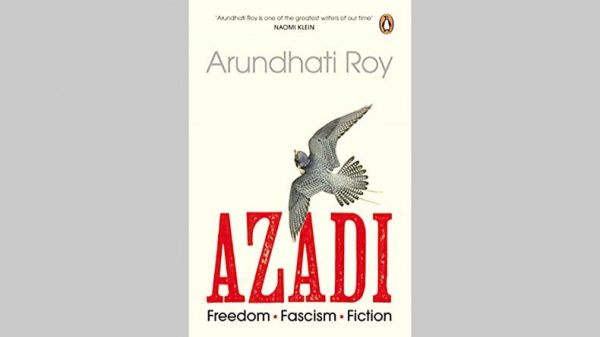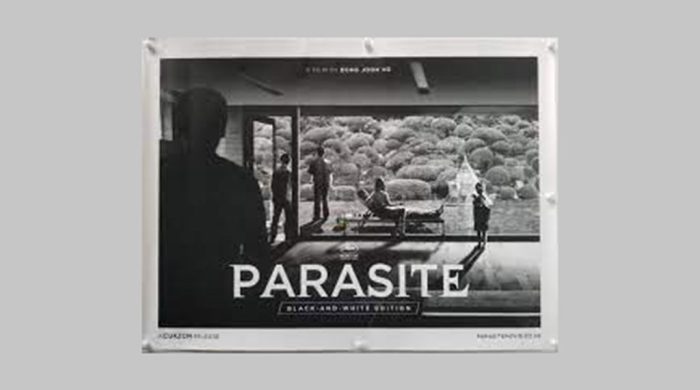Arundhati Roy’s Azadi: A voice against fascism and for freedom

- Update Time : Tuesday, December 14, 2021
- 131 Time View

Arundhati Roy (1961- ) is one of the leading Indian writers in English who is often regarded as an ‘activist writer’ for her clear and stern position against all sorts of misrule and injustice. She can be best described in the words of Naomi Klein who says, ‘Arundhati Roy is one of the greatest writers of our time.’ Roy won the Booker Prize in 1997 for her very first novel The God of Small Things (1997) and her recent novel The Ministry of Utmost Happiness (2017) had been long listed for Man Booker Prize.
Azadi is a collection of essays published by Penguin Random House in 2020. It is a collection of nine essays, the themes of which are pretty similar. The predominant issues that the essays tackle can be outlined as protest against discriminatory treatment of the minority in India by the government, voice against racism, oppression and abuse done in the name of democracy, depriving the people from enjoying their basic as well as human rights, the Indian government’s fascist attitude towards the people of Kashmir, attack in the universities, and government’s failure to face natural crises like the Covid pandemic.
The first essay in this collection is ‘In What Language Does Rain Fall over Tormented Cities?’ It refers to the identity crisis and inner torments the author herself undergoes for choosing English as the medium of writing. Writing in English by authors from former British colonies is often regarded by critics as ‘a tribute to the British Empire.’. Arundhati believes that, ‘… language is the most private and yet most public things.’ Contending that language is a common property for all and can be manipulated any way an author intends. Roy sternly says, ‘India as a country, a nation state, was a British idea. So, the idea of English is as good or as bad as the idea of India itself.’ Based on the reading of these essays, the above critical stance about writing in English by authors of former colonies can be reversed. More precisely, Roy’s essays belie this stereotypical assumption. Rather, it is the appropriation of the opportunities. The title of the essay is adapted from one of the lectures by Nobel Laureate poet Pablo Neruda (1904–1973), who, in one of his lectures, poses the question ‘In what Language Does Rain Fall over Tormented Cities?’ Roy’s answer to this question can be marked at the end of the essay: ‘I’d say, without hesitation, in the language of Translation.’
The second essay ‘Election Season in a Dangerous Democracy’ is actually the written version of Roy’s speech given in a press conference in New Delhi on August 29, 2018. In it, she voices against the inappropriate and unlawful move by the Modi government in India, their discriminatory treatment of the minority and manipulation of education in India. Roy says, ‘In the India of today, to belong to a minority is a crime.’ She points out the existing political scenario in India where in the name of democracy governments always run the wheels of oppression and do preserve a fascist outlook in every aspect of state affairs where protesting the lynching of the minorities, supporting the cause of the poor, claiming righteous treatment and justice for all citizens irrespective of their religion and ethnicity are termed as a plot to overthrow the government. From this she concludes that there might be shifts and changes in government in India but their attitude towards the ‘wretched’ remains all the same.
In ‘Our Captured, Wounded Hearts’, the third essay, the author focuses on the distress and agonies of the people in Kashmir whose lives are in constant threat of bombs and guns of Indian army. She holds the Indian ministry of defence responsible, identifying it as the ‘most corrupt ministry’ for violence and atrocities inflicted on the Kashmiris. The author asks the world to find a way out for Kashmir, which in her term ‘is the real theatre of unspeakable violence and moral corrosion.’
The fourth essay of Azadi, ‘The Language of Literature’ is the one which Roy presented in ‘The PEN Arthur Miller Freedom to Write’. The essay addresses some of the basic issues of contemporary literary discourse such as the nature of the language in literature, relation between facts and fictions, the role of autobiographical aspects in novels and the scope for writers in India in raising voice against the ruling forces. Freedom of the press and freedom to write is very much commissioned in India. This statement can be supported by quoting Roy; she says: ‘In India it is not possible to speak of Kashmir with any degree of honesty without risking bodily harm.’
The fifth essay ‘The Silence is the Loudest Sound’ written on the eve of the 70th anniversary of India’s independence focuses on the impact of partition on the life of the people in India in general and Kashmir in particular. In her words, it is unforgivable what India has done to the people of Kashmir which is often termed by the ruling forces as ‘the unfinished business of the partition’ over the last seventy years.
The sixth essay ‘Intimations of an Ending: The Rise and Rise of the Hindu Nation” is derived from one of Roy’s previous lectures titled ‘The Jonathan Schell Memorial Lecture Series on the Fate of the Earth’, delivered at Cooper Union Great Hall, New York on November 19, 2019. It criticises the Indian government’s National Register of Citizens (NRC) modalities that attempts to decline and question the citizenship of the Muslims living in India. An anti-Muslim slogan is frequently reiterated in India by those who support the idea that India is only for the Hindus and the: ‘only place for the Mussalman — the graveyard or Pakistan.’ Roy blatantly criticises the Indian government led by the BJP for their enterprise in making India a Hindu state that constantly denies the rights of others.
‘The Graveyard Talks Back: Fiction in the Time of Fake News’ is the seventh essay in the book. It is a composition of ‘The 2020 Clark Lecture in English Literature’, instituted by Trinity College, University of Cambridge’, by Roy. Here Roy defines Azadi for which Indian people were protesting. She clearly states the fact that Azadi means respite from poverty, discrimination, patriarchy and repression and for this the trodden people have a lot to do in the future to win a world for them.
The eighth essay ‘There is Fire in the Ducts, the System is Failing’ excoriates the Modi government for their autocratic and unhelpful public policies they took like CAA, NPR and NRC. She urges the educated people, especially writers and artists, to come forward to raise voice against the breakdown of systems and government’s undemocratic procedures taken under the guise of democracy.
The last essay of this collection, ‘The Pandemic is a Portal’, deals with some of the very essential contemporary issues. This essay is about the ongoing pandemic and its consequences, the unpreparedness of the human world to face such natural revenge and the futility of so called world powers that have utterly and frustratingly failed to mitigate the impacts of the pandemic. The super powers only know how to fight and destroy the world, but know nothing or are visibly and undoubtedly destitute in facing any real music on earth created by the mother earth itself. Roy has very vividly and sternly criticised and pointed out the irrationality of the Modi government’s sudden decision to lock down the whole India within four hours without considering the practicality of the decision and without considering the predicament of the people who do not have any means to live. The pandemic has, Roy says, revealed the real face of the Indian government. To quote Arundhati ‘Some believe it’s a God’s way of bringing us to our senses.’ In reality, the opposite has happened.
Roy’s Azadi is a great read. Roy very vividly discusses the issues of democracy, human rights, right to live in one’s own motherland, the nature of fascism under the umbrella of democracy, religious fanaticism, urge of the aggrieved and incarcerated to have freedom. However, the book ends with a hope for a world where people will have a disease-free and terror-free life for them and for generations to come.
Alamgir Mohammad is a faculty at Bangladesh Army International University of Science and Technology, Comilla.



















